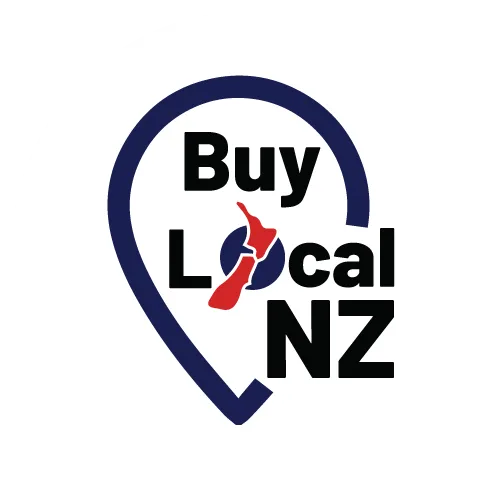
Complete Guide: Business Schema For Local Rankings
Business schema markup helps your website communicate essential information directly to search engines, boosting your local search visibility. You'll need to implement structured data that includes your business name, address, phone number, hours, and other key details using JSON-LD format. By properly marking up your business data and validating it with testing tools, you can enhance your appearance in local search results and rich snippets. The following guide will show you exactly how to optimise your schema for maximum local impact.
Key Points
- Add essential schema properties like business name, address, phone number, hours, and description using JSON-LD format for optimal visibility.
- Validate schema implementation using Google's Rich Results Test and Schema Markup Validator to ensure error-free code.
- Implement unique schema markup for each business location, including specific NAP details and operating hours.
- Monitor schema performance through Google Search Console and track local ranking improvements after implementation.
- Include customer ratings, service areas, and business categories in schema markup to enhance local search relevance.
Understanding Business Schema Markup and Its SEO Impact
Before you can optimise your local business rankings, it's essential to grasp the fundamentals of business schema markup. This structured data code helps search engines understand specific details about your business, from your hours of operation to your customer reviews.
Think of schema markup as your business's digital DNA – a precise way to communicate your organisation's key information to search engines. You'll find it empowers you to break free from traditional SEO constraints by directly telling search engines exactly what your business is about.
Schema markup isn't just another SEO tactic; it's your ticket to enhanced visibility in local search results. When you implement it correctly, you're giving search engines the confidence to display your business information in rich snippets, knowledge panels, and local packs.
Essential Business Schema Properties for Local Rankings
When implementing business schema markup, you'll need to include essential properties like your business name, address, phone number, and hours of operation as required elements.
You can strengthen your local SEO by adding recommended properties such as your business description, accepted payment methods, and price range.
Your schema implementation should also feature specific properties that match your business type, like "menu" for restaurants or "appointment" options for service providers.
Required Schema Elements
Implementing essential schema properties for your local business is crucial for improving search visibility and rankings. You'll need to include key elements that search engines expect to see for local businesses.
Start with your business name, address, and phone number (NAP) marked up with proper schema. Include your official business hours, accepted payment methods, and a clear description of your products or services.
Don't forget to specify your business type using the most specific category available. Add your geographic service area, price range, and customer ratings when possible. These elements help search engines understand exactly where and how you operate.
Remember to mark up your logo, images, and social media profiles to create a complete digital footprint that search engines can easily interpret.
Schema Properties Worth Adding
Beyond the basic required elements, several additional schema properties can greatly boost your local search performance. These powerful properties help search engines better understand your business's unique qualities and local relevance.
| Property | Purpose | Impact |
|---|---|---|
| priceRange | Shows cost level | Attracts budget-conscious searchers |
| areaServed | Defines service radius | Targets specific geographic zones |
| paymentAccepted | Lists payment methods | Improves user expectations |
Break free from generic listings by implementing these strategic schema properties. You'll gain control over how search engines interpret your business data while creating more meaningful connections with potential customers. Each property you add strengthens your local search presence and helps you stand out from competitors who stick to basic schema implementations.
Implementing Schema Markup on Your Business Website
To properly enhance your business website with schema markup, you'll need to follow specific implementation steps and best practices.
Start by choosing between JSON-LD and microdata formats - with JSON-LD being Google's preferred method. Add the schema code to your website's HTML, either directly in the header section or through your content management system's schema plugin.
For WordPress users, plugins like Yoast SEO or Schema Pro can automate this process.
Test your implementation using Google's Rich Results Test and Schema Markup Validator to guarantee proper formatting and detect potential errors.
Monitor your search appearance through Google Search Console to verify the markup is being recognised.
Remember to update your schema whenever you make significant changes to your business information or website structure.
Testing and Validating Your Business Schema Code
Once you've added schema markup to your website, proper testing and validation become essential steps to guarantee search engines can correctly interpret your business data.
Start by using Google's Rich Results Test tool, which shows you exactly how your schema appears to search engines and flags any potential errors.
Don't stop there - utilise additional validation tools like Schema.org's Markup Validator and JSON-LD Playground to catch any syntax issues or missing required properties.
These tools give you the freedom to experiment with your code and perfect it before it goes live.
Monitor your schema implementation through Google Search Console, which alerts you to any structured data errors and helps you track how your business information appears in search results.
Advanced Schema Strategies for Multiple Business Locations
When managing multiple business locations, you'll need distinct schema markup for each physical location while maintaining a cohesive organisational structure.
You can create separate LocalBusiness schema properties for individual locations, ensuring each includes unique NAP (Name, Address, Phone) data and specific operating hours.
For businesses with specialised departments, you'll want to cross-link your department schema markup using the 'department' and 'parentOrganisation' properties to establish clear hierarchical relationships.
Location-Specific Schema Implementation
While managing multiple business locations requires careful attention to schema markup, implementing location-specific schema properly can greatly boost your local search rankings.
You'll need to create unique schema markup for each location, ensuring distinct NAP (Name, Address, Phone) details are accurately represented.
Break free from generic implementations by customising each location's schema with specific attributes like unique store identifiers, operating hours, and local amenities.
Empower your locations with specialised schema properties that highlight their individual characteristics, such as parking availability, accessibility features, or neighbourhood-specific services.
Don't forget to interlink your locations using the 'branchOf' property while maintaining separate 'LocalBusiness' entities.
This hierarchical structure helps search engines understand your business network while preserving each location's independence in local search results.
Cross-Linking Department Schema Markup
Beyond individual location markup, implementing cross-linked department schema creates a thorough web of interconnected business data.
You'll empower your business structure by connecting various departments through strategic schema relationships, breaking free from isolated data silos.
Link your departments using the 'department' property within your Organisation schema, establishing clear hierarchical connections.
For each department, specify its relationship to both the main organisation and other relevant departments.
Use 'parentOrganisation' and 'subOrganisation' properties to create these essential connections.
Don't forget to include unique identifiers for each department with the 'branchCode' property, ensuring Google accurately understands your organisational structure.
This interconnected approach strengthens your local search presence and helps search engines better understand your business's complex relationships.
Measuring Schema Performance in Local Search Results
Since implementing schema markup affects your local search visibility, tracking its performance is crucial for optimising your business presence. Monitor your local search rankings using tools like Google Search Console and track position changes for targeted keywords.
Pay attention to click-through rates and impressions before and after schema implementation. Break free from traditional analytics by examining rich snippet performance in search results. Track which schema elements generate the most engagement and adjust your markup strategy accordingly.
Use third-party schema validators to verify your code remains error-free and compliant with search engine requirements. Set up custom reports to measure specific schema-enhanced elements like review ratings, business hours, and location data.
Compare your performance against local competitors to identify opportunities for schema optimisation and market differentiation.
In Summary
Now that you've learned how to implement business schema markup, you're ready to boost your local search visibility. With studies showing that rich results can increase click-through rates by up to 30%, your properly structured schema data will give you a competitive edge. Keep testing your markup, monitor your local rankings, and stay current with schema updates to maintain your advantage in local search results.

